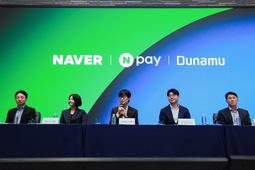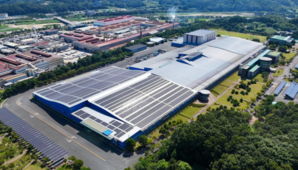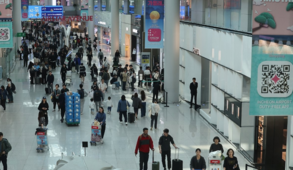
[News Space=Reporter seungwon lee] An unprecedented situation has unfolded: Chairman Cho Hyun-beom of Hankook Tire & Technology has been arrested again. This marks the second time the owner of Korea's leading tire group has been sentenced to prison, having previously been sentenced in 2019 and again in May 2025.
This ruling has gone down in history as a representative example that quantitatively and qualitatively demonstrates the "total failure" of the Korean conglomerate system and the chronic vulnerabilities of the country's corporate governance structure.
This incident is considered a symbolic one, clearly revealing the structural limitations of internal control systems across Korea, encompassing government relations, legal affairs, auditing, and even public relations. Above all, the fact that the internal surveillance system within a large conglomerate failed to prevent illegal activity on two occasions calls into question the very nature of "owner risk."
Repeated owner crimes, two arrests… More than individual misconduct, this is a growing "internal systemic risk."
On May 29, 2025, the Seoul Central District Court sentenced Chairman Cho Hyun-beom to three years in prison and detained him on charges of embezzlement and breach of trust under the Act on the Aggravated Punishment, etc. of Specific Economic Crimes. The main charges included lending 5 billion won of affiliate funds for personal use, using a corporate credit card for personal use, and using affiliate vehicles and personnel for household purposes.
All of this was found guilty. They used company assets as if they were their own personal vaults. The amount of embezzlement and breach of trust acknowledged was between 7 billion and 20 billion won.
What's even more troubling is that this isn't Chairman Cho's first arrest. In 2019, he was arrested on charges of accepting tens of millions of won in bribes from a partner company and embezzling approximately 600 million won in company funds. The criminal methods involved were typical examples of "owner-driven profiteering," including personal misappropriation of company funds and the transfer of funds to affiliates.
At the time, the sentence was reduced to 3 years in prison and 4 years of probation in the second trial, and he was released from custody, but the company's image and market trust had already been deeply damaged.
This case of the same owner being arrested twice in a short period of time is virtually unprecedented, even among Korea's top 100 conglomerates. The impact on corporate value was also significant. Indeed, domestic and international empirical evidence shows that when corruption among the owner or majority shareholder's family occurs, corporate value declines by 5-17%, and ESG (environmental, social, and governance) ratings and credit ratings also plummet.
Where are the public relations team, legal team, and audit function? Beyond "incompetence," the argument for "uselessness" is heating up.
This incident is particularly concerning because the minimal monitoring mechanisms within the company to detect and block risks were not in place, leading to harsh criticism that Chairman Cho's repeated arrests were like "the owner taking money out of an open safe at will."
Financial and corporate finance experts also attribute this situation to the comprehensive failure of the government relations, legal affairs, and internal audit departments. They view this situation not as a simple individual misstep, but as a systemic breakdown. Government relations, legal affairs, auditing, and public relations departments all failed to address the owner's repeated illegal activities.
An official from a corporate loan team said, "The loan team will do whatever it takes to prevent the owner chairman from appearing at the National Assembly (prosecution) inspection. Even if only the president is summoned, there is chaos within the company." He added, "Moreover, the owner's arrest is something that should never happen to the loan department and legal team, and they consider it the most humiliating thing."
He explained the slang term among government officials: "One back, two escapes, three illnesses." It means, "First, use your connections, second, flee overseas, and third, pretend to be sick and be hospitalized." He added, "Sometimes, outrageous methods are employed to prevent the CEO (owner) from appearing at the National Assembly inspection or being questioned by the prosecution."
Government Relations Team. This refers to an organization that forms networks with investigative agencies such as the National Assembly, government ministries, the prosecution, the police, and the National Tax Service, and performs a variety of tasks, from information gathering to planning and strategy formulation to lobbying. The most representative government relations team is the Future Strategy Office, which served as Samsung's control tower. Until its dissolution, the Future Strategy Office oversaw government relations for all Samsung affiliates.
In particular, this incident has brought the functions and roles of Hankook & Company's public relations and legal departments under scrutiny. The investigation into Chairman Cho Hyun-beom's case stemmed not from an internal whistleblower or audit, but from a complaint from the Fair Trade Commission and a swift investigation by the prosecution. It has been confirmed that neither the internal audit team, the accounting team, nor any of its employees detected the repeated, large-scale misappropriation of funds.
An official from the legal team of the conglomerate pointed out, "In a case like this where Chairman Cho Hyun-beom of the conglomerate committed a serious crime and was sentenced to prison quickly, the government and legal teams are effectively powerless," and "They may say they made efforts to protect the conglomerate, but the general consensus in the industry is that they fundamentally failed to even block the beginning of the crime."
Absence of internal oversight… "What were the accounting and audit teams doing?"
An even bigger problem is that the accounting and auditing systems are equally problematic. Most of Chairman Cho's allegations involve transactions between affiliates (such as high-priced tire mold purchases, loaning funds, and using corporate cards exclusively) and could easily be detected through internal accounting systems or internal audits, which transparently monitor cash flow.
Yet, the fact that unauthorized lending and misappropriation persisted for years demonstrates that the organizational structure effectively failed to keep the owners in check. The investigation by the Seoul Central District Prosecutors' Office and the Fair Trade Commission confirmed that most of the allegations were a recurring pattern since at least 2017.
A government-funded research institute analyzed in a report that “the structural incompetence of these large corporation owners is due to the fact that the organizations they were supposed to trust ultimately act as accomplices in enabling the owners’ crimes.”
Repeated owner risks have had significant negative impacts, including short-term stock price plunges, a decline in corporate trust, and the severance of business relationships with business partners, as seen in the Hanjin Group peanut incident, Lotte Group's management dispute, and the assault incident involving a child of Hanwha Group.
The Korea Economic Reform Alliance: "The CEO's reputation is more important than the company's public interest... We need to reconsider the company's reason for existence."
Criticism of this situation is pouring in from the latest external evaluations, media, and civic groups.
The Solidarity for Economic Reform issued a statement, saying, “Chairman Cho Hyun-beom, who is using the public asset of the company for the owner’s illegal private gain, is a legal risk to the company and is close to moral bankruptcy,” and “It is a case of abandoning even the minimum courtesy to shareholders and society for a CEO who is not free from responsibility for using the company for personal gain to once again lead the company.”
An anonymous executive at a major corporation said, “This incident is a total failure of Korea’s owner-centered management system, and the only solution is the practical design and implementation of internal controls.”
Unlike global corporations, the auditing and oversight systems of major Korean companies remain owner-centered, plagued by inefficiencies, perfunctory oversight, and inadequacies with practicality. Capital market research papers and various management reports repeatedly emphasize the need for transparent internal accounting systems, third-party checks and balances, and minority shareholder protections as minimum requirements.
A senior executive from a large corporation said, “This incident was ultimately a tragic laboratory where one owner can corrupt the entire organizational system,” and added, “It is no longer the job of the government to protect the CEO, but the true performance indicator is the thorough design of internal systems that protect the company before it reaches the point of illegality.”
"Owner's Deviation = Organizational Failure"… Urgent Need to Redesign Internal Systems to Block Risk
Chairman Cho Hyun-beom's two arrests were not a "risk solely attributed to the owner," but rather the result of complicity across the entire organization. It represents a total failure of the corporate system, stemming from a lack of internal controls, dereliction of duty by executives and employees, and the structural incompetence of the government relations, legal affairs, and auditing departments.
Going forward, Korea's leading companies will not be able to secure global trust, investment, or survival without a substantial overhaul of their governance structure, where all executives and employees become subjects of checks and balances, rather than merely superficial bulletproof systems. A criminal owner is evidence of organizational failure, and another arrest means another systemic collapse.
A PR executive at Korea & Company responds… The true face of a rigid and distorted organizational culture.
The public relations executive at Korea & Company responded to Newsspace's interview with, "Please verify your facts before writing. We (PR) will not respond. The legal department will handle it." This statement not only ignores the media's essential request for coverage, but also disregards the PR department's basic responsibility as an active information provider and communication channel between the company and society.
In particular, evasive responses such as saying they will leave the matter to the legal team can ultimately lead to legal threats or lawsuits, which can discourage journalistic activities or even undermine the ethical principle of journalistic rights, such as guaranteeing the right to reply.
A public relations executive from the business world analyzed, "The fact that the company has consistently and irresponsibly responded to questions from the media, which represents the public interest, by insisting on 'legal response' has exposed the company's lack of transparency and the rigidity of its organizational culture to various stakeholders such as civil society, investors, and consumers." He added, "It is clear that neglecting the responsibility to communicate with the media may help avoid a short-term crisis, but it will ultimately have a toxic effect on restoring trust in the organization."
The PR team's "unconventional responses" and evasive responses aren't simply a matter of words or actions. They represent a crucial signal of how an organization communicates with society in a crisis. In an era where corporate crisis management and reputation management are increasingly emphasized, organizations like Hankook & Company, prioritizing legal action over shirking their responsibility to communicate with the press, poses yet another risk.
The 13th Criminal Division of the Seoul High Court (Presiding Judges Baek Kang-jin, Kim Seon-hee, and Yoo Dong-gyun) set the second trial preparation date for Chairman Cho at 2:30 p.m. today, August 11.
Source: Maeil Ilbo (http://www.mi.kr)
What kind of place is Korea & Company?
Ranked 27th among large conglomerates by 2025 (assets of KRW 21.525 trillion), it is designated by the Fair Trade Commission as a group subject to cross-shareholding restrictions. It discloses its transparent board of directors, appointment of outside directors, and shareholding and affiliate shareholding structure quarterly through the Financial Supervisory Service (DART).
Hankook & Company is a traditional family-owned company, with succession succession from the first-generation founder (Cho Hong-je), the second-generation (Cho Yang-rae), and the third-generation (Cho Hyun-beom). Issues such as management rights defense, power struggles within the family, and ownership risks continue to be key issues in the management of affiliates and family ownership, as analyzed by court and Fair Trade Commission precedents and the business community.
Who is Chairman Cho Hyun-beom?
Chairman Cho Hyun-beom, the second son, who holds more than 42% of the shares, is the key power holder, but the complex shareholding structure among siblings such as eldest son Cho Hyun-sik (former advisor to Hankook & Company, former vice chairman), eldest daughter Cho Hee-kyung (chairman of the Hankook Tire Sharing Foundation), and second daughter Cho Hee-won, as well as stakeholders such as financial institutions and private equity funds, is a continuous risk factor such as 'sibling conflict' and public takeover crisis.
Chairman Cho Hyun-beom was born in 1972 and graduated from Kyungbok Elementary School, Dwight School, and Englewood School, before earning a bachelor's degree from Boston College. He is survived by his father, Cho Yang-rae, his mother, Hong Moon-ja, and his wife, Lee Soo-yeon.
Chairman Cho Hyun-beom, son-in-law of former President Lee Myung-bak, has two children (eldest daughter Cho Yu-bin (born 2003) and eldest son Cho Jae-min (born 2006), but their direct stakes are minimal. However, there are reports that he intends to pass the succession to the third generation through the family company, Areum Holdings.
























































